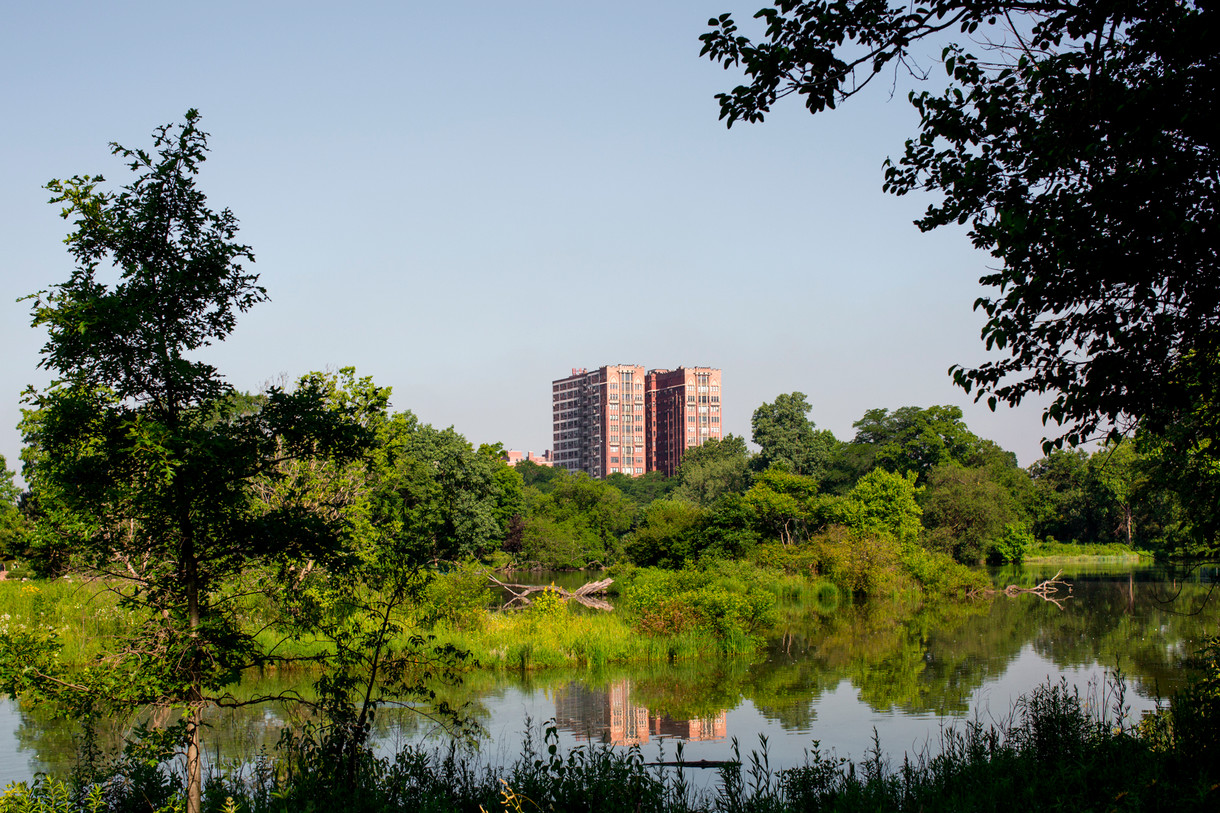Ask the Expert: Beth Davis-Berg on Environmental Science

Beth Davis-Berg likes science. Studying land snails and invertebrate zoology is part of Davis-Berg's professional research and teaching at Columbia College Chicago. As chair of the Science and Mathematics Department at Columbia, Davis-Berg welcomes students to the wild side of nature through the Environmental and Sustainability Studies BA.
Conversations about climate change spike among journalists as Earth Day approaches. So, we asked Davis-Berg to break down popular climate topics and share how Columbia has made efforts to make greener choices across its campus buildings.
“In the environmental studies world, there is a lot out there about climate change. There are a lot of people working on how to communicate and integrate climate change into policy to build more awareness among the general public,” says Davis-Berg.
In the biology world, Davis-Berg says she’s seeing more press coverage on microplastics. However, it isn’t nearly as new as the articles are implying.
“I’ve seen articles on microplastics in larvae for more than five years, easily, at this point,” says Davis-Berg. “I’m glad to see it’s getting out into the world, but one of the things that’s hard is both environmental science and sustainability are such broad topics that no one person can be an expert.”
The challenge is to connect the dots between scientists who study the same toxins, like microplastics. Some researchers study microplastics in marine larvae and then another group of researchers will look at microplastics in synthetic fabrics and clothing. “Those two groups may never talk to each other even if they’re working with the same environmental toxin,” says Davis-Berg. “The question is how we integrate this research across fields that include humanities, policy, biology, chemistry and so on.”
Even with all the unknowns, Davis-Berg says that’s what excites her most about studying the environment and the effects of climate change.
“This is why it’s such a unique field. There’s always more to learn,” she says. “We don’t know the long-term effects of everything we’re discovering.”
How to make an impact with Environmental Sustainability
Popular press often focuses on what consumers can do to make small changes, which can be difficult to accomplish without policy and public awareness to move the needle. However, Davis-Berg teaches students to think about sustainability with their chosen creative industries like fashion and entertainment. Encouraging students to lower their dependence on single-use plastics is something Davis-Berg preaches. Sustainable swaps also tend to be less expensive after that initial investment, she explains. A sustainable swap can be as easy as using a reusable water bottle instead of a plastic water alternative.
“Last summer there was a social justice class with associate professor Lauren Peters Downing on sustainable festivals that talked about a lot of the ways other countries who hold festivals are trying to be more sustainable,” says Davis-Berg.
And here at home in Chicago, Columbia has its own green initiatives and commitment to a more sustainable campus environment. The Columbia College Chicago Green Buildings Program (CCC-GBP) looks holistically at the design, space utilization, operations, and life cycle impact of the college’s owned properties. According to research by the U.S. Energy Information Administration, buildings are responsible for 40% of global carbon dioxide emissions and are the largest source of all greenhouse gas emissions in Chicago.
Davis-Berg says she appreciates how some of our campus buildings have green roofs and are pollinator-friendly. And inside Columbia’s buildings, there are motion-activated lights that help reduce energy use and low-flow toilets that reduce water use.
This Earth Day, Davis-Berg encourages the Columbia community to participate in the upcoming events on campus in partnership with facilities and operations and the Student Government Association (SGA).
Earth Day Symposium and Clean Up on April 12, 2024
Symposium is from 10 a.m. to 11:30 a.m.
Clean-up from 11:30 a.m. to 1:30 p.m.
Recent News
- Students Launch “In Flux,” an Interactive Digital Magazine
- Top Stories from Columbia College Chicago in 2024
- The Dance Center Presents the Chicago Solo Spotlight Festival, March 13-15
- Columbia College Chicago Team Wins National NRF Retail Challenge
- Alumni and Faculty Shine in Newcity Stage’s 'Players 2025'